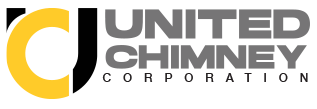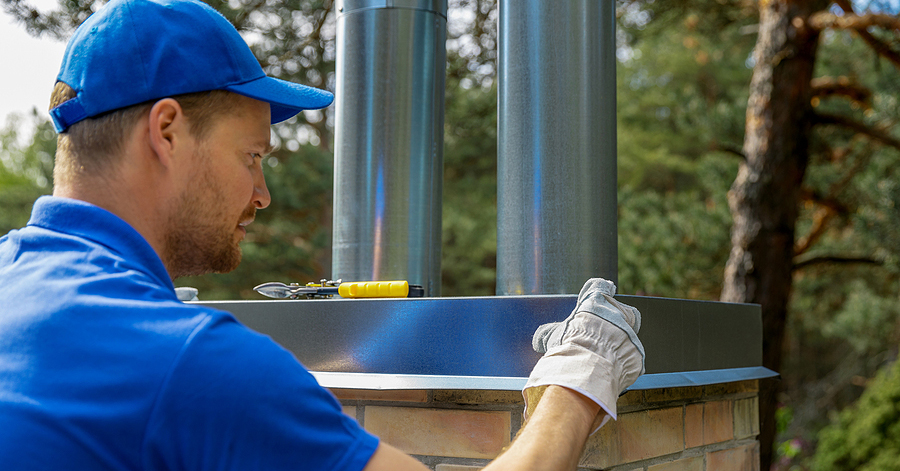How Regular Chimney Inspections Can Prevent Costly Repairs
Your chimney plays a crucial role in keeping your home or building safe and efficient, but like any other structural component, it requires regular maintenance. Skipping routine chimney inspections may seem like a way to save money, but in reality, it often leads to costly repairs down the line.
Cracks, blockages, leaks, and deterioration can develop gradually, and without regular inspections, these minor issues can turn into major, expensive problems. In this article, we’ll explain how routine chimney inspections can help you avoid unexpected repair bills, fire hazards, and structural damage.
The Hidden Dangers of a Neglected Chimney
Many chimney problems develop slowly over time, often going unnoticed until they require extensive—and costly—repairs. Here are some of the most common issues that can be prevented with regular inspections:
- Creosote Buildup & Fire Hazards – A thick layer of creosote (a highly flammable byproduct of burning wood) can accumulate in chimneys, increasing the risk of chimney fires.
- Cracked Chimney Liners – A damaged liner can allow heat and dangerous gases to escape, leading to carbon monoxide exposure or nearby structural damage.
- Blocked or Poor Ventilation – Nests, debris, or failing venting systems can cause improper airflow, resulting in smoke backup, inefficient heating, or carbon monoxide risks.
- Water Damage & Leaks – Moisture is one of the biggest threats to chimneys. Once water gets inside, it can cause brick deterioration, rusted dampers, and weakened structural integrity.
- Loose or Missing Chimney Caps & Flashing – A missing or damaged cap allows water, debris, and animals to enter, leading to expensive damage and blockages.
The good news? Regular chimney inspections can identify these problems before they require costly repairs or replacements.
How Regular Inspections Save You Money
A small investment in annual chimney inspections can help you avoid major expenses in the long run. Here’s how:
Early Problem Detection = Lower Repair Costs
- Catching cracks, leaks, or blockages early means they can be repaired before they cause major structural damage.
- A minor masonry repair now costs far less than a full chimney rebuild later.
Preventing Chimney Fires & Safety Risks
- Chimney fires caused by creosote buildup can lead to thousands in damages—or worse, the loss of a home.
- Routine cleanings and inspections remove fire hazards before they become emergencies.
Avoiding Water Damage & Structural Deterioration
- Water can weaken bricks, cause rust, and destroy chimney liners.
- A simple waterproofing treatment or a repaired flashing seal can prevent thousands in damage.
Maintaining Proper Ventilation & Efficiency
- Blocked chimneys force your heating system to work harder, increasing energy costs.
- Routine inspections keep your system running efficiently, saving money on energy bills.
Staying Ahead of Costly Code Violations
- Neglected chimneys in multi-story residential or commercial buildings can lead to fire code violations, insurance issues, and expensive fines.
- Regular inspections ensure your chimney meets all local safety regulations.
How Often Should You Get a Chimney Inspection?
The National Fire Protection Association (NFPA) recommends a chimney inspection at least once a year, even if you don’t use your fireplace frequently.
Best times for an inspection:
- Before heating season begins (fall/winter) – Ensure your chimney is safe before increased use.
- After a major storm – Heavy rain, wind, and snow can damage chimneys and flashing.
- After a chimney fire or major repairs – Always inspect before reusing a damaged system.
- Before buying or selling a property – Homebuyers should always have chimneys inspected for hidden damage.
What Happens During a Chimney Inspection?
A professional chimney inspection involves a thorough assessment of your chimney’s condition. At United Chimney, our inspections include:
- Visual Examination: Checking for exterior cracks, missing mortar, and structural issues.
- Video Chimney Scan: Using high-resolution cameras to inspect the flue liner for hidden cracks and blockages.
- Draft & Pressure Testing: Ensuring proper airflow and venting to prevent smoke and carbon monoxide hazards.
- Waterproofing Check: Inspecting flashing, chimney caps, and seals to prevent leaks and moisture damage.
If issues are detected, we provide clear recommendations and solutions before they turn into expensive repairs.
Protect Your Chimney, Home, and Wallet with United Chimney
Regular chimney inspections are a small investment that pays off big—in safety, efficiency, and long-term savings. Whether you own a single-family home or manage a multi-story building, staying proactive with chimney maintenance is the best way to avoid costly repairs and unexpected hazards.
Don’t wait until it’s too late. Schedule your chimney inspection with United Chimney today and keep your home or building safe, efficient, and up to code.


